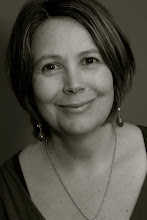Writing can be a complex process. It can help you sort things out, it can be used as an intricate defense mechanism, and it can sometimes expose the shadow self that you never intended to show, and perhaps aren’t quite ready to see, let alone, share. Good writing is said to “show, not tell.” But sometimes metaphors aren’t springing up like daisies after a warm April shower, and so you just tell, and telling is cathartic.
Research confirms that just the act of putting thoughts and feelings into words can be healing, and as Maya Angelou says, “There is no greater agony than bearing an untold story inside you.” Sometimes, though, the agony is also in putting the story out there. Because sharing your writing can make you vulnerable, and that is how writing makes me feel, sometimes, perhaps, most times, if I’m honest. I looked up the definition of vulnerable, and here’s what I found:
Vulnerable: ORIGIN early 17th cent.: from late Latin vulnerabilis, from Latin vulnerare ‘to wound,’ from vulnus ‘wound.’
Maybe that’s why it sometimes feels scary, when I share myself through writing, because I am sharing my woundedness through words. Understanding then, that if I wasn’t wounded, there would be nothing to heal. And in the shadow self, some of those wounds aren’t completely healed, and this is why it is still difficult. Metaphors abound around this theme, we have “battle scars,” we talk of life’s journey as the “hero’s quest.” And what hero has not fought and been wounded? Recently, in a class someone noted that there are no single-mom heroes out there, and I thought of a good friend of mine who calls me her hero.
She says this to me, “You are my hero.” (I’m getting used to her saying it, even liking it.) I never thought of myself as a hero, but she goes on, “Are you kidding me? Raising three girls by yourself? I don’t know how you do it?” And it’s funny, I was in Target yesterday, calmly shopping with Megan, who has the shopping list on her phone, and I walked by a woman with three kids, two hanging off the cart, one by her side, and she was navigating this all, and I thought to myself, “Oh my God, three kids!” And then I laughed and said to Megan, “I saw that woman with the three kids, and thought how difficult, how can she manage, three kids?” She smiled, because she knew, that was me, that was us, years ago.
I’m still navigating my own wounds, and helping to heal others in my work as a therapist. The former paradigm, the one that we are shifting away from, tells us about boundaries, warns us about sharing our pain, not to inflict our pain on our clients, and from what I can see, the more a therapist tries to compartmentalize, the more they share their unseen woundedness.
Yet, I worry as I try to bridge these worlds, being open and being closed, being both a writer and a therapist. Being both wounded and healed, being vulnerable and invulnerable. I hope to explore my own shadows, in my writing, in my art, in my life, and by being comfortable with this place; continue unafraid to walk through the shadow lives of others. Not compartmentalized into writer and therapist, mother and hero, but to integrate all of my selves, into a stronger, both more and less vulnerable version of who I am now. This, I guess, is my hero’s quest.
